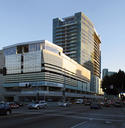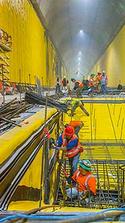California, once disdained as zany, insubstantial and politically unreliable, has now become a favorite of the blue state crew. From culture and technology to politics, the Golden State is getting all sorts of kudos from an establishment media traditionally critical of our state.
For example, the New York Times recently ran two pieces, one political and the other cultural, that praised this state for its innovation and cool – even in the midst of a horrendous drought. read more »






















